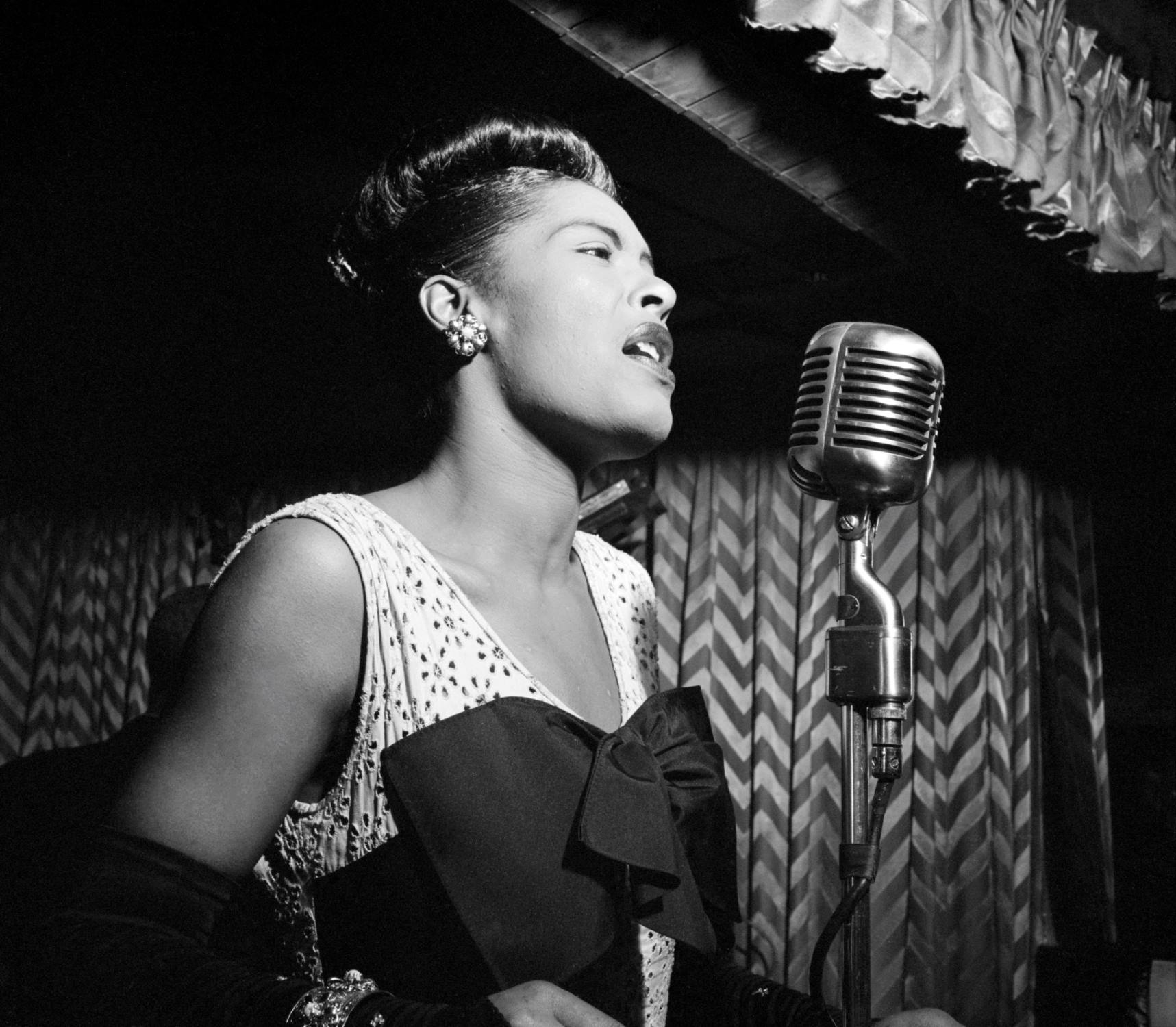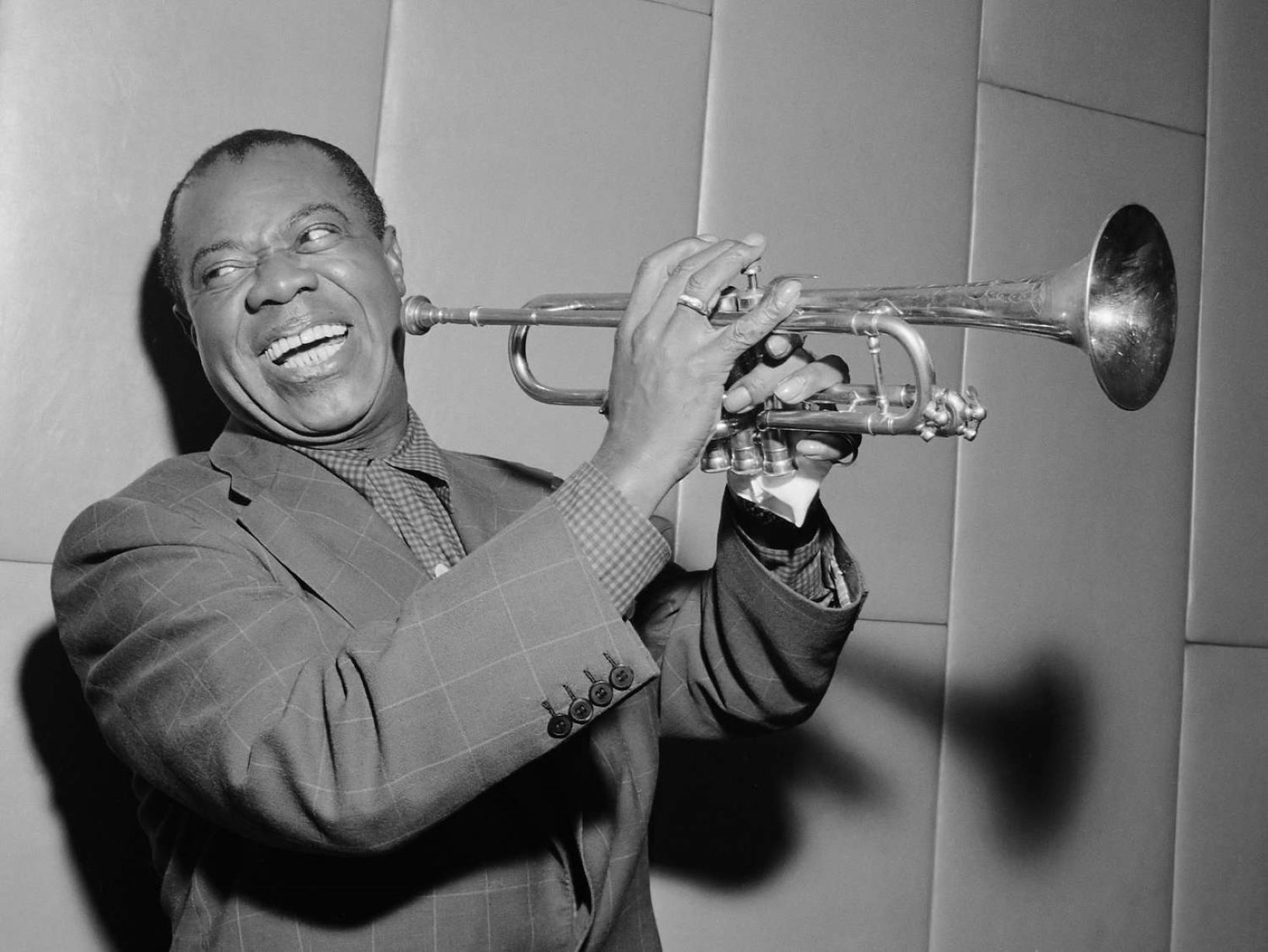Home>Genres>Jazz>She Was Born Eleanora Fagan. Who Was This American Jazz Singer And Song Writer?


Jazz
She Was Born Eleanora Fagan. Who Was This American Jazz Singer And Song Writer?
Modified: February 24, 2024
Discover the captivating story of Eleanora Fagan, the iconic American jazz singer and songwriter, whose mesmerizing music revolutionized the world of jazz.
(Many of the links in this article redirect to a specific reviewed product. Your purchase of these products through affiliate links helps to generate commission for AudioLover.com, at no extra cost. Learn more)
Table of Contents
Introduction
Jazz has long been regarded as one of America’s most iconic and beloved genres of music. At the forefront of this captivating art form stands an extraordinary artist whose unique voice and poignant storytelling have left an indelible mark on the world of music – Billie Holiday. Born Eleanora Fagan, Holiday’s extraordinary talent and soulful delivery continue to resonate with audiences to this day.
The rich and vibrant history of jazz is deeply intertwined with African-American culture, and Billie Holiday’s music serves as a powerful testament to this heritage. Through her mesmerizing performances and heartfelt compositions, she brought a raw and emotive quality to jazz that captivated listeners worldwide.
From her humble beginnings to her eventual rise to fame, Holiday’s journey is one filled with triumphs, heartaches, and artistic resilience. Her music not only showcased her incredible vocal range and improvisational skills, but it also served as a voice for the African-American community during a time of great social and racial injustice.
In this article, we will delve into the life and career of Billie Holiday, exploring her early life and background, her rise to fame, her iconic songs and musical style, as well as her personal struggles. We will also examine her lasting impact on the world of jazz and the legacy she left behind.
Join us on this intriguing journey as we uncover the fascinating story of Billie Holiday, a woman who defied the odds and became a true legend of jazz.
Early Life and Background
Billie Holiday was born on April 7, 1915, in Philadelphia, Pennsylvania, as Eleanora Fagan. She grew up in a challenging environment, facing poverty and instability from an early age. Holiday’s childhood was marked by a lack of stability, as she experienced frequent relocations and familial hardships.
Tragically, Holiday’s early years were marred by a tumultuous family life. Her parents’ relationship was strained, and her father was largely absent from her life. To escape the difficulties at home, Holiday sought refuge in music, finding solace and inspiration in the records of Bessie Smith and Louis Armstrong.
At the tender age of 11, Holiday’s life took an unexpected turn when she was sent to a Catholic reform school. The reasons for her enrollment are unclear, but it was through this institution that she received her first formal music training. Holiday learned to sing and even briefly dabbled in playing the piano.
Upon her release from the reform school at the age of 14, Holiday faced the challenges of finding her place in the world. She performed in various talent shows and small clubs in Harlem, immersing herself in the vibrant jazz scene. It was during this period that she adopted the stage name “Billie” after the film star Billie Dove.
As a young woman, Holiday faced numerous obstacles and encountered the harsh realities of racial discrimination. Despite these challenges, her immense talent began to draw attention. In 1933, she caught the ear of influential record producer John Hammond, who recognized her potential and helped launch her career.
From her humble beginnings and early struggles, Billie Holiday emerged as a fledgling artist, ready to make her mark on the world of jazz. Her tumultuous upbringing and experiences undoubtedly shaped her unique musical style and deeply emotional performances.
Stay tuned as we explore the incredible journey of Billie Holiday, from her career beginnings to her rise as one of the most influential jazz singers of all time.
Career Beginnings
After catching the attention of record producer John Hammond, Billie Holiday began her professional career in the early 1930s. In 1933, she recorded her first tracks with Teddy Wilson and his orchestra, including the famous song “Riffin’ the Scotch.” This collaboration introduced Holiday’s unique voice to the world and showcased her ability to infuse emotion into her performances.
It was during this period that Holiday began to develop her distinct style, characterized by her gut-wrenching delivery, immaculate phrasing, and innovative use of improvisation. Drawing inspiration from her idols, such as Bessie Smith and Louis Armstrong, Holiday crafted a sound that was both captivating and deeply personal.
While working as a vocalist in various Harlem clubs, Holiday caught the attention of bandleader and pianist Count Basie. She joined his orchestra in 1937, marking a significant milestone in her career. It was with Basie’s band that Holiday’s fame began to skyrocket.
During her time with Count Basie, Holiday recorded several popular tracks like “Swing Brother Swing” and “Fine and Mellow.” Her ability to connect with audiences and her profound emotional depth set her apart from other singers of the time.
In 1939, Holiday embarked on a new chapter in her career when she joined the band led by renowned jazz musician and clarinetist Artie Shaw. This collaboration exposed her to a wider audience and helped solidify her reputation as one of the premier jazz vocalists of the era.
Despite her success, Holiday faced numerous challenges in the music industry. Racial discrimination was rampant at the time, and she often encountered prejudice and unequal treatment. However, her resilience and unrivaled talent continued to propel her forward.
As the 1940s dawned, Billie Holiday’s star continued to rise. She began recording extensively as a solo artist, producing timeless classics like “Strange Fruit,” a powerful protest song against racism and lynching. This hauntingly beautiful composition solidified her position as an artist unafraid to tackle pressing social issues through her music.
Join us as we delve deeper into Billie Holiday’s journey and explore the heights she would reach as she embraced her artistic freedom and paved the way for future musicians.
Rise to Fame as Billie Holiday
As the 1940s progressed, Billie Holiday’s career blossomed, propelling her to become one of the most influential and iconic jazz singers of all time. Her unique vocal style and ability to convey raw emotion through her performances captivated audiences around the world.
One of the defining moments in Holiday’s career came in 1940 when she began working with pianist and bandleader, Lester Young. The two had an undeniable musical chemistry, with Young’s smooth and melodic phrasing complementing Holiday’s soulful delivery. Their collaborations resulted in timeless recordings such as “Easy Living” and “Trav’lin’ Light,” which showcased their musical synergy and cemented their status as jazz legends.
However, it was her recording of “Strange Fruit” in 1939 that would solidify Holiday’s reputation as a fearless and socially conscious artist. This powerful and haunting song addressed the horrors of racism and the lynching of African Americans. The song’s impact was unprecedented and sparked both controversy and acclaim, earning Holiday a place in history as a trailblazer for using music as a means of protest.
Throughout the 1940s, Holiday continued to record prolifically, delivering hits such as “Lover Man,” “God Bless the Child,” and “Don’t Explain.” Her unique interpretation of each song, coupled with her ability to convey pain and vulnerability, earned her a devoted fan base and critical acclaim.
Despite her artistic success, Holiday faced personal and legal troubles throughout her career. Her struggles with substance abuse and tumultuous relationships often made headlines and took a toll on her health. However, even in the midst of adversity, Holiday’s talent remained undeniable, and she continued to captivate audiences with her powerful performances.
In 1956, Holiday released her autobiography, “Lady Sings the Blues,” which provided a candid look into her personal and professional life. The book became a bestseller and further cemented her status as an icon.
Tragically, Billie Holiday’s life was cut short at the age of 44 when she passed away on July 17, 1959. Despite her untimely death, her legacy lives on through her unparalleled contributions to jazz and her ability to touch hearts through her music.
As we reflect on the rise of Billie Holiday, we can appreciate the impact she had on the jazz genre, her fearlessness in addressing social issues, and her enduring influence on generations of musicians to come.
Iconic Songs and Musical Style
Billie Holiday’s discography is filled with timeless classics that continue to resonate with audiences to this day. Her unique musical style, characterized by her effortless phrasing, impeccable timing, and ability to infuse each lyric with raw emotion, set her apart as a truly exceptional artist.
One of Holiday’s most iconic songs is “God Bless the Child.” Released in 1941, this powerful composition showcases her ability to create a magnetic connection with listeners through her unparalleled vocal delivery. The song’s themes of resilience and independence resonated deeply with both her own personal journey and the experiences of her audience.
Another landmark track in Holiday’s repertoire is “Strange Fruit.” Released in 1939, this haunting and poignant protest song addressed the rampant racism and violence endured by African Americans during that time. Its graphic depiction of lynching and its stark imagery made it a controversial yet significant anthem within the civil rights movement.
With her rendition of the jazz standard “Summertime,” Holiday imbued the classic tune with her signature style, infusing it with a sense of longing and melancholy. Her soulful interpretation breathed new life into the song and solidified her ability to connect emotionally with listeners.
Holiday’s exquisite rendition of “Lover Man” showcases her incredible range and expressive vocal dynamics. With each note, she effortlessly conveyed the complexity of love and heartbreak, leaving an indelible mark on the listener’s soul.
In terms of musical style, Holiday was a master of improvisation. Her ability to take a melody and mold it to her own interpretation with inventive melodic variations and unique phrasing set her apart from her peers. Whether she was swinging along with a big band or performing an intimate ballad accompanied only by a piano, Holiday’s improvisational skills remained unparalleled.
Her vocal technique, characterized by a relaxed yet precise delivery, allowed her to effortlessly glide between low sultry tones and soaring highs. The way she manipulated her voice, playfully bending notes and adding subtle inflections, brought depth and authenticity to her performances, making her a true vocal innovator.
Billie Holiday’s musical style and iconic songs continue to inspire countless artists across generations. Her ability to convey deep emotion and tell powerful stories through her music make her a true legend of jazz.
Join us as we explore further into Holiday’s personal life and the struggles she faced along her extraordinary journey.
Personal Life and Struggles
Behind Billie Holiday’s mesmerizing performances and undeniable talent, lay a life marked by personal struggles and hardships. From her early years to the height of her career, Holiday faced numerous challenges that impacted both her personal life and professional endeavors.
One of the most significant influences on Holiday’s life was her tumultuous relationships. She had a string of turbulent romances, often with abusive partners. These toxic relationships contributed to her emotional turmoil and took a toll on her overall well-being.
Additionally, Holiday battled with substance abuse throughout her life. She turned to drugs as a means of coping with the pressures and emotional pain she experienced. Her drug addiction resulted in repeated legal troubles and had a detrimental impact on her health.
Racial discrimination also played a significant role in Holiday’s life. As an African-American woman in the early to mid-20th century, she faced systemic racism and inequality. She was subjected to segregation, unequal pay, and mistreatment, both on and off stage. Despite these obstacles, she defied societal norms and made her voice heard through her impactful music.
Unfortunately, Holiday’s struggles extended beyond her personal life. She faced numerous legal issues and was a target of the Federal Bureau of Narcotics due to her drug addiction. In 1947, she was arrested and subjected to a highly publicized trial, which had a detrimental effect on her career and personal reputation.
Amidst these challenges, Holiday’s resilience and determination shone through. She continued to perform, recording albums and delivering memorable live performances despite the personal and legal obstacles she faced. It is a testament to her unwavering dedication to her craft and her profound love for music.
Tragically, Holiday’s personal struggles ultimately took a toll on her health. In 1959, she was diagnosed with cirrhosis of the liver, a result of years of heavy drinking and drug abuse. She passed away on July 17, 1959, leaving behind a legacy that endures to this day.
Billie Holiday’s personal life was marked by struggles and challenges, but through it all, she used music as a means of expressing her pain and triumphs. Her ability to transform her personal experiences into universally relatable songs solidified her status as a true artist and established her as one of the most respected and revered figures in jazz history.
Join us as we explore the impact and lasting legacy of Billie Holiday, and the profound influence she had on the world of music.
Impact and Legacy
Billie Holiday’s impact on the world of music is immeasurable. Her unique vocal style, emotive performances, and fearless approach to addressing social issues have left an indelible mark on the jazz genre and beyond. Her legacy continues to inspire and influence musicians from all walks of life.
One of Holiday’s greatest contributions was her ability to infuse her music with raw emotion and vulnerability. She laid bare her own personal experiences, pain, and triumphs, creating a powerful connection with her audience. Her extraordinary ability to convey complex emotions through her voice set a new standard for jazz vocalists.
Holiday’s resolute commitment to addressing social injustices through her music made her a trailblazer. Her fearless stance on issues like racism, inequality, and oppression, particularly evident in her timeless recording of “Strange Fruit,” carved a path for future artists to use their platform to shed light on important societal issues.
Her influence can be seen in the work of countless artists who came after her. From Nina Simone to Amy Winehouse, Holiday’s impact on vocalists across genres is undeniable. Her ability to blend jazz, blues, and popular music to create a unique sound has set a precedent for musicians seeking to transcend traditional boundaries.
Holiday’s recordings, such as “God Bless the Child,” “Lover Man,” and “Lady Sings the Blues,” continue to resonate with audiences worldwide. Her storytelling ability and the depth of emotions she brought to each song are timeless, evoking a range of feelings in listeners to this day.
Furthermore, Holiday’s influence extends beyond her music. Her personal struggles with discrimination, abusive relationships, and substance abuse have shed light on the intersectionality of race, gender, and mental health. Her resilience and ability to persevere in the face of adversity serve as an inspiration for individuals facing their own challenges.
In recognition of her significant contributions to music, Billie Holiday has been posthumously honored with numerous accolades. She was inducted into the Grammy Hall of Fame, received a Grammy Lifetime Achievement Award, and was posthumously awarded a star on the Hollywood Walk of Fame.
Billie Holiday’s impact on jazz and popular music cannot be overstated. Her hauntingly beautiful voice, innovative style, and unwavering commitment to truth and authenticity continue to transcend time and connect with audiences on a profound level. She remains a symbol of resilience, artistry, and the power of music to effect change.
As we conclude our exploration of Billie Holiday’s life and legacy, let us remember and celebrate the enduring gift she left to the world – her extraordinary talent and unwavering spirit that continue to inspire and touch hearts to this day.
Conclusion
Billie Holiday’s life and career were a testament to the power of music to transcend boundaries and touch the depths of the human soul. From her early struggles to her rise as one of the most iconic jazz vocalists of all time, she left an indelible mark on both the music world and the fight for social justice.
Her unique vocal style, characterized by her ability to convey raw emotion and vulnerability, set her apart from her contemporaries. Holiday’s ability to infuse each song with her personal experiences turned them into profound narratives that continue to resonate with listeners today.
Not only did Holiday possess an extraordinary voice, but she also fearlessly used her platform to address social issues. With songs like “Strange Fruit,” she brought attention to the horrors of racism and systemic oppression, solidifying her status as an artist unafraid to challenge the status quo.
Holiday’s impact on the world of music extended far beyond her own lifetime. Her innovative approach to vocal improvisation, her seamless fusion of jazz and popular music, and her unwavering commitment to authenticity paved the way for generations of artists to follow.
Her personal struggles with abusive relationships, substance abuse, and the realities of racial discrimination only added depth and resonance to her music. While her life was tragically cut short, her legacy lives on, inspiring artists and listeners alike to confront societal issues and embrace their own unique voice.
In the annals of jazz history, Billie Holiday’s name will forever shine brightly as a symbol of artistic brilliance and unwavering courage. Her music continues to captivate and move listeners, her voice resonating through the decades, reminding us of the power of music to heal, empower, and evoke deep emotion.
As we celebrate the life and legacy of Billie Holiday, let us remember her as a pioneer, a visionary, and a true legend of jazz. Her voice, her songs, and her spirit will forever live on, reminding us of the beauty and transformative power of music.











